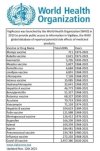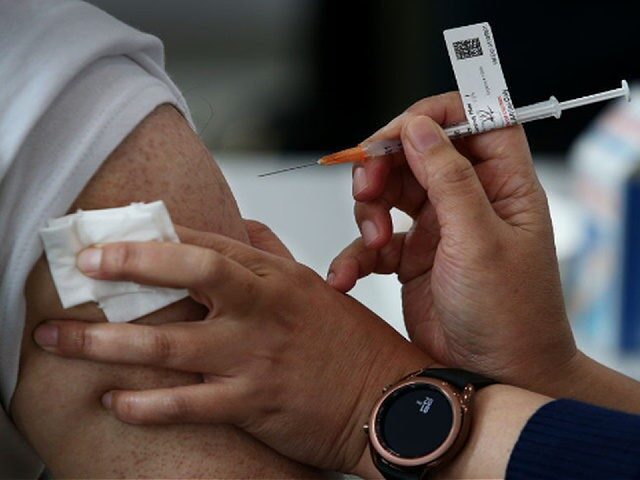Priming the vaccine counter counter narrative, seems to have been well at hand by paid psychologists pre 2020.
Of course the hot spot, for now, has been seen in the tyrannical reactions by some in the Australian government to enforce at all cost, curiously, this is also the academic hot spot of psychologists writing and citing each others papers on how best to
manipulate motivate the public to ensure that they acquiesce willingly or reluctantly, and who will, and who will not, resist vaccines. There is large focus in papers of the "hesitant," as a soft language word.
Based upon the progression to the now, late in 2021, the findings and words of these psychological lab studies can be seen as been parroted down through academia, governments, and right into the public discourse (through social media). Those who undertake physiological analysis, look to those who might even consider, expose or believe in some conspiracies, thus they are focal points within these mind studies and how best to counteract same.
Propaganda
The advertising man appeals to desire in the interest of his client. The desire to be strong and healthy, to be socially acceptable, to be beautiful, sells drug products, cosmetics, reducing preparations, soaps, perfumes. Anyone who is accustomed to reading advertisements will instantly recall dozens of illustrations of appeals to such desires used to promote a wide variety of products.
The skilled propagandist also knows the techniques of “making ideas stick.” It is because of this knowledge that he resorts to key words and slogans, shibboleths, or other symbolic forms.
Out of a long list, one psychologists to hit the scene is Steve Taylor, an Australian who currently resides in the psychology department of UBC. In 2019, miraculously and some might say prophetically, Steve wrote a book. One can read
The Guardians 'Headline' below and further garner what is being sad by reading from the link:
‘No one wanted to read’ his book on pandemic psychology – then Covid hit
In October 2019, a month or so before Covid-19 began to spread from the industrial Chinese city of Wuhan,
Steven Taylor, an Australian psychologist at the University of British Columbia in Vancouver,
published what would turn out to be a remarkably prophetic book,
The Psychology of Pandemics.
Once the so called pandemic hit, Steve went on to sit on some of Canada's
advisory panels:
The Chief Science Advisor of Canada (CSA) has assembled a multidisciplinary science expert panel to advise her on the latest scientific developments relevant to COVID-19. This information will assist the CSA in providing current and cross-disciplinary advice to the Prime Minister and government.
The expert group is composed of distinguished Canadian scientists and will be meeting on a regular basis. The first meeting took place on March 10 to discuss available science and evidence from disease modelling, risk perception, diagnostic and clinical research.
The UBC department, as an aside, studied Mask Wearing, which can be read in this article:
[...]
What role can cognitive science play in understanding the mindset of anti-maskers?
Cognitive science has been studying why we find objects emotionally relevant for some time, asking questions like: How do preferences and other emotional “appraisals” come about? Is it related to familiarity of the object, experience of its use? A host of laboratory studies suggest that the objects that are attended to or chosen because you are going to act on them– often
not voluntarily, when participants are “tricked” into choosing these objects by means of some experimental task – gain emotional value. In our study, we tested if this translates into the reality of COVID protection, and found that it does.
"Nobody likes protective masks, but the more and the longer one wears them, the less one dislikes them"
Attention can be brought to one of Steve's et al. papers titled:
This was pre vaccine rollout:
Objective: To identify (1) the prevalence of vaccination hesitancy for a SARS-CoV2 vaccine, (2) the motivational roots of this hesitancy, and (3) the most promising incentives for improving the likelihood of vaccination uptake when a vaccine does become available.
Mandatory vaccination is unlikely to be a viable option in individualistic societies due to increasing anti-vaccination sentiment (
Taylor, 2019). If vaccination hesitancy for SARS-CoV2 is prevalent, then it is important to identify the motivational roots (i.e., attitudes or reasons)
underlying the reluctance (
Hornsey et al., 2018) and ways to address these. Public education programs (e.g., “
do it for the herd”) can be helpful to some extent (
Taylor, 2019); but, identifying motivational factors for vaccination hesitancy and then
proactively tailoring public health messaging and incentives to address these factors prior to beginning an immunization program may improve overall vaccine uptake (
World Health Organization, 2020).
[...]
Anticipating and preparing for problems concerning vaccination adherence when a vaccine for SARS-CoV2 becomes available is a critical step in managing the COVID-19 pandemic. Research suggests that greater than 70% of the population will need to be vaccinated against SARS-CoV2 to achieve herd immunity (Fine et al., 2011). Our research suggests that 25% of Americans and 20% of Canadians would reject a SARS-CoV2 vaccine, raising concerns that herd immunity might not be attained when a vaccine becomes available.
[...]
Findings from the present study, along with results from previous studies, have important implications for public policy. In order to maximize the uptake of a SARSCoV2 vaccine, when such vaccine becomes available, it is important to address the various anti-vaccination beliefs identified in the present study and in other recent investigations.
Noted was that before Steve's book release in 2019, there was an article by Joe Pierre M.D. in
Psychology Today that continued to dress the stage (notice he quotes Jonathan Swift, who would, no doubt, roll in his grave at his words misuse):
Antivaxxers and the Plague of Science Denial
Fraud, misinformation, and conspiracy theories can be a deadly combination.
Posted February 8, 2019
https://www.psychologytoday.com/us/...902/antivaxxers-and-the-plague-science-denial
"Falsehood flies, and the Truth comes limping after it; so that when Men come to be undeceiv’d, it is too late; the Jest is over, and the Tale has had its Effect." —Jonathan Swift (1710)
There are papers out of the U.S. (directed at Americans) such as this:
(Sept 2021 - Hornsey cited)
The results also suggest that perceptions of the seriousness of the pandemic mediated
the relation between conspiracy beliefs and mask-wearing, while perceptions of personal threat were only directly related to each outcome in Wave 1. It is also noteworthy
that reliance on mainstream TV news was a positive predictor of change in both outcomes, as well as negatively related to conspiracy beliefs and positively to both types of threat in March. These patterns
suggest that mainstream TV news plays a larger role than other news media in emphasizing the importance of the pandemic's threat and in not legitimizing COVID-related conspiracy theories.
[...]
5. Conclusions
Conspiracy beliefs regarding the coronavirus pandemic in the US were widespread and persistent over four months, more likely to be held
by either persons with conservative political ideology or in disadvantaged racial-ethnic groups and more likely to be associated with use of conservative media outlets. Additionally, persons
with non-White racial-ethnic identity and those using social media were more likely to believe that the MMR vaccine is harmful. Conspiracy beliefs and their associations with perceptions of vaccine harm present continuing challenges to the control of the coronavirus pandemic because of their persistence and association with non-acceptance of recommended action,
especially mask-wearing, and increasing unwillingness to receive a vaccine when it becomes available.
Confronting these conspiracy beliefs will require action by journalists and commentators, especially those with politically conservative audiences, to increase acceptance of medically recommended actions to control the pandemic.
Another primer study was out of Italy (again often citing Hornsey out of Queensland Australia) with a focus on conspiracies:
Conspiracy Beliefs and Acceptance of COVID-Vaccine: An Exploratory Study in Italy
Abstract
The availability of vaccines does not mean that people will be willing to get vaccinated. For example,
different conspiracy beliefs on the adverse effects of vaccines may lead people to avoid collective health measures. This paper
explores the role played by antecedents of COVID-related conspiracy beliefs, such as the role of political ideology and the endorsement of moral purity values, and the consequences of COVID-related conspiracy beliefs in terms of the acceptance of a COVID vaccine (when available) via structural equation modelling (SEM). A sample of 590 Italian participants filled in a questionnaire implemented using the Qualtrics.com platform, during the first Italian lockdown in April–May 2020.
Results showed that endorsing purity values predicted stronger negative attitude towards COVID-vaccines. Moreover, conspiracy beliefs negatively predicted general attitudes toward vaccines. Faith in science negatively predicted general and COVID-related conspiracy beliefs, with those believing more in science also less endorsing general and COVID-related conspiracy beliefs. The attitudes towards the vaccines mediated the relationship between COVID-related conspiracy beliefs and attitudes towards COVID vaccine.
With Hornsey (who Steve cites) he wrote as a "University of Queensland Objective":
The Psychological Roots of Anti-Vaccination Attitudes: A 24-Nation Investigation (pdf)
Strengthening of antivaccination movements in recent decades has coincided with unprecedented increases in the incidence of some communicable diseases. Many intervention programs work from a deficit model of science communication, presuming that vaccination skeptics lack the ability to access or understand evidence. However, interventions focusing on evidence and the debunking of vaccine-related myths
have proven to be either nonproductive or counterproductive. Working from a motivated reasoning perspective, we examine the psychological factors that might motivate people to reject scientific consensus around vaccination. To assist with international generalizability, we examine this question in 24 countries. Methods: We sampled 5,323 participants in 24 countries, and measured their antivaccination attitudes.
We also measured their belief in conspiracy theories, reactance (the tendency for people to have a low tolerance for impingements on their freedoms), disgust sensitivity toward blood and needles, and individualistic/hierarchical worldviews (i.e., people’s beliefs about how much control society should have over individuals, and whether hierarchies are desirable). Results:
In order of magnitude, antivaccination attitudes were highest among those who (a) were high in conspiratorial thinking, (b) were high in reactance, (c) reported high levels of disgust toward blood and needles, and (d) had strong individualistic/hierarchical worldviews. In contrast, demographic variables (including education) accounted for nonsignificant or trivial levels of variance. Conclusions: These data help identify the “
attitude roots” that may motivate and sustain vaccine skepticism. In so doing, they help shed light on why repetition of evidence can be nonproductive, and suggest communication solutions to that problem.
Somewhere (can't locate now - so if anyone can find it) there is a depiction of Hornsey's "Attitude Tree" which is, well, an illustrative guild of growing concern for the ptb.
Here, Hornsey looks to (July 2021):
Pro-vaccination subjective norms moderate the relationship between conspiracy mentality and vaccination intentions
Conclusions The current research provides
first evidence that conspiracy mentality and subjective norm conjointly predict vaccination intentions. However, it is not conspiracy mentality that reduces the impact of subjective norm as was initially expected. Rather,
it is the subjective norm that determines whether or not the conspiracy mentality negatively predicts vaccination intentions. Conspiracy mentality negatively predicts vaccination intentions
only when the norms set by close others is not in favour of vaccination. Thus, keeping social bonds instead of rejecting people who are susceptible to conspiracy beliefs should be encouraged. This way, it seems possible
to contain the negative impact of conspiracy beliefs and possibly also the spread of serious diseases.
There is also this paper (not Hornsey or Steve) that speaks for itself, although fits into the planning schemes. It is noted, and a recurring theme, the use of words, such as individual or collective (national) narcissistic tendency as a vaccine predictor:
National narcissism and support for voluntary vaccination policy: The mediating role of vaccination conspiracy beliefs (July 2021)
Aleksandra Cislak,1 Marta Marchlewska,2 Adrian Dominik Wojcik,3 Kacper Śliwiński,3 Zuzanna Molenda,2 Dagmara Szczepańska2 and Aleksandra Cichocka3,4
Abstract
We investigate
the relationship between vaccination hesitancy and the way people feel about their national groups. Antivaccination attitudes are associated with
conspiracy beliefs, which have been linked to groupbased defensiveness. Thus, we hypothesized that defensiveness about one’s
national identity, operationalized as collective narcissism measured in relation to one’s national group, might be related to antivaccination attitudes.
We found that national narcissism, but not national identification, predicted support for a voluntary vaccination policy both in a general population sample (N = 361) and among visitors of antivaccination discussion forums (N = 178). In two further studies involving national quota samples, national narcissism was also related to vaccination conspiracy beliefs (N = 1,048), and these beliefs mediated its association with support for a voluntary vaccination policy (N = 811). By highlighting
the link between antiscience attitudes and collective narcissism, we demonstrate that group defensiveness can be linked to support for decisions that may undermine the health and well-being of present and future ingroup members.
Where would things be without a psychological study poke at Trump (again Hornsey):
(May 2020)
“Trump effect” is not merely a case of Trump holding a mirror to people’s pre-existing views: his messages have the power to change attitudes. As such, future research needs to take seriously the impact of Trump as a change-agent, one that is impeding the broader campaign to increase vaccination uptake and to eliminate infectious diseases.
Well, we know what happened to the guy who could help change attitudes.
Continuing with Hornsey, here is a progression of the papers her wrote (in no particular order). This repeats the paper on the "Trump Effect" and adds contact tracing, as are papers on Climate Change and fake meat included (all part and parcel):
Overall, it is clear that there was a great deal of money and grants whirling around to help counteract attitudes.
Distilling down some of the psychologists discourse looks to:
1. Broad types of vaccine hesitancy - general and specific (Pandemic Fatigue studies), which the latter includes being younger, affluent, using labels such as being narcissistic, being entitled and psychologically anxious, both cynical and apathetic and look to hoax conspiracies or exaggerations as a whole.
2. People who share beliefs in conspiracies tend, again, to be narcissistic, have low literacy skills, and analytical thinking that is poor, science is rejected and have believes in pseudoscience. They may have dark personality traits in their actions. They can be politically motivated (Trump Effect), and are true believers.
3. Beliefs might include covid being rooted in bioweapons and depopulation, heaven forbid.
Edward Curtin might say (or RFKjr.); who would fit somewhere into their psychologists study findings, that there is a great war against spiritualism (important), and that the covid army includes scientific entropy, fostering the hidden belief in nihilism itself. Ensuring there is collective narcissism for the body centric minded, that helps form the advancing and increasing ranks against humanity itself.
End Note:
Started was the focus on Australia's jackboot realities, and the overrepresentation of Australian psychologists that clearly have helped to counteract with messaging, which some might call, paid for faux psychological studies, against any resistance or natural immunity that humanity might rise in its own defence. Can these studies listed above be their own form of a psychological contagion, one that has spread country by country, state by state, province by province, or is that too conspiratorial (well not for this thread perhaps)?




